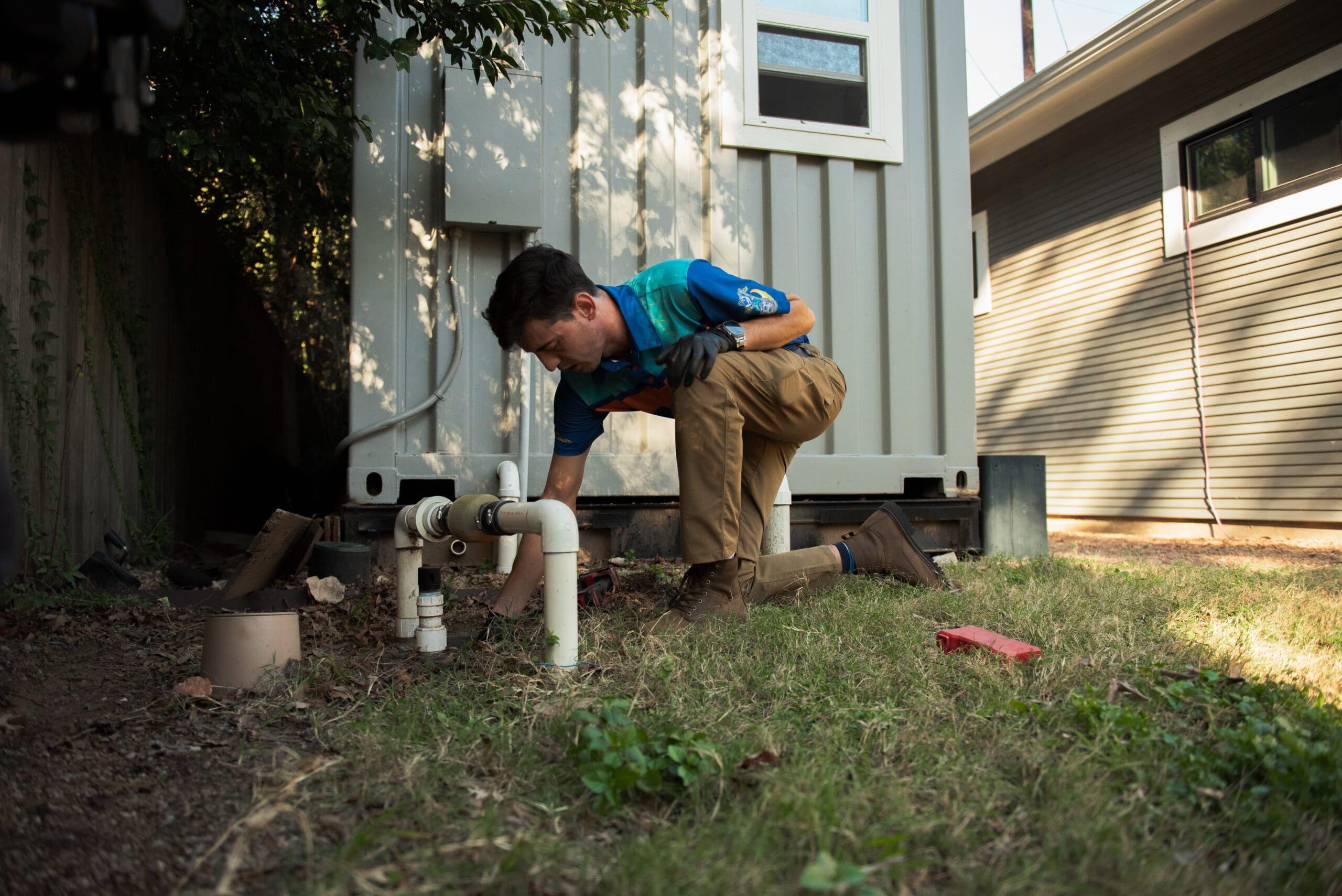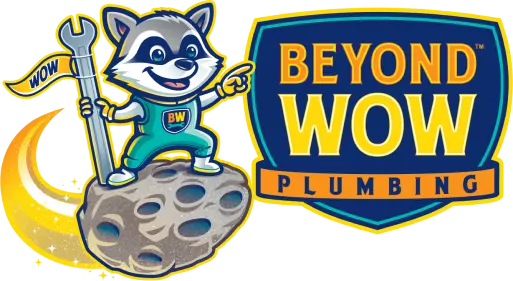
Can Heavy Rains Cause My Plumbing to Back Up?
Dealing with plumbing backups can be an absolute nightmare. Not only will you be unable to use your home’s plumbing system until the cause of the problem is fixed, but you might also have to deal with wastewater and raw sewage flooding out of your toilets and drains. Most plumbing backups are caused by clogs or blockages in the drains or sewer lines inside the home or the sewer main out in your yard. This can be due to flushing things you shouldn’t or result from tree roots getting inside your main sewer line and blocking the water flow. There are also times when heavy rains or snowmelt can cause sewer backups, but this depends on both the type of sewage system you use and how your city or municipality handles rainwater and runoff.
How Rain Can Affect Septic Systems
As you’ll see in the next section, sewer backups are fairly rare nowadays in properties connected to a municipal sewer system. However, if your building uses a septic system, then rainwater can much more easily cause a backup. Septic systems rely on a leach or drain field to remove and treat wastewater from the septic tank. Without a working leach field, the water inside the tank would quickly rise too high.
Heavy rains can soak the soil in the leach field, which makes it impossible for water to properly flow out of the system. When this happens, it can either cause the septic tank to overflow or the wastewater to back up and overflow out of your drains and plumbing fixtures. In either case, your only options are to either wait for the ground to dry out enough for the leach field to work properly or have the excess water pumped out of the septic tank.
If you frequently experience this issue with your septic tank after a big rainstorm, your best option is usually to replace your existing leach field with a different type of setup. The most common solution to this problem is to switch to a mounded leach field. With this setup, the leach field is located in a large mound of dirt and sand on top of the ground instead of being buried below the surface. This type of system is usually much less prone to flooding and backups since the leach field is located well above the groundwater table. In fact, the only real way that this setup can experience issues with backups caused by flooding is if the floodwater rises high enough to cover the mounded leach field.
Storm Sewers vs Combined Sewers
In the past, it was extremely common for plumbing to back up inside buildings following heavy rains. This is because most municipalities used to use a combined sewer system. In this type of system, both sewage from buildings and storm runoff were directed into the same sewer system. As you can imagine, this type of system can easily become overwhelmed with too much water after a rainstorm. When this happens, the system can no longer accommodate any more water coming from your sewer line. As a result, the wastewater will start to back up inside the building since it has nowhere else to go. This issue can also cause sewage to overflow out of the sewer system and pollute the ground, groundwater and any nearby bodies of water.
Thankfully, the vast majority of cities and municipalities have moved away from combined sewer systems and now have separate systems for sewage and wastewater. In this type of setup, there is really no way for the storm runoff to get into the normal sewer line since it is directed to a separate storm sewer. As a result, areas that have both a standard sewage system and a storm sewer system generally don’t have any issues with backups caused by heavy rains.
If you live in an area with a separate storm sewer system and still experience a backup after a heavy rain, it generally indicates a problem with your main sewer line and not the city’s sewer system. For instance, if your sewer line is damaged due to tree roots, it could allow water to get inside and flow into your home. Alternatively, it may allow sediment to get inside and block the pipe. Extremely heavy rains could also possibly break or crush your sewer line due to the added weight, or they could even cause your pipes to shift and bend or break. There is also a chance that the backup and the rain are unrelated and that the issue is simply due to a clog in your sewer line.
Methods for Preventing Sewer Backups
Although moving away from combined sewer systems has made a huge difference in stopping backups caused by heavy rains, there are still many neighborhoods that frequently experience this problem. In this case, you can easily prevent backups by having a professional plumber install a check valve on each floor drain and plumbing fixture. Alternatively, you can also have a check valve installed on your main sewer line, but this will require digging up and potentially replacing the sewer main.
A check valve is a relatively simple piece of equipment that uses a flapper or valve to ensure that the water can only flow one way through the pipe. Basically, the valve opens to allow water to flow downwards out of the system. If any water flows back up through the pipe, it will push the flapper closed, which seals off the pipe to prevent the water from backing up inside the building.
If you frequently experience backups or flooding after rainstorms, you may also want to consider installing a sump pump to prevent water damage to your home. A sump pump is usually installed inside a pit or reservoir in the basement or crawl space. The purpose of this system is to capture excess groundwater and pump it out and away from the building to prevent flooding caused by heavy rains. A sump pump can also protect your building’s foundation from being damaged, which can occur due to the added pressure on it from the rainwater in the ground.
Identifying the Signs of a Plumbing Backup
Sewer backups are usually fairly easy to spot since they often result in wastewater overflowing out of drains and plumbing fixtures. However, the water may not always back up inside the house immediately.
For this reason, you should also watch out for these other signs that can indicate your sewer line is clogged and may soon back up.
- Water drains much slower than usual
- Pipes or plumbing fixtures make gurgling noises
- Sewage smells coming from your drains and plumbing fixtures
If you are experiencing a backup or notice any of these other issues, it is vital that you contact a professional plumber immediately. At Beyond Wow, we have been providing expert plumbing services to customers in Austin and the surrounding areas for more than 40 years. Our team of licensed plumbers specializes in drain and sewer cleaning, repairs, leak detection and a range of other plumbing services. We pride ourselves on providing excellent customer service, which is why we always provide upfront pricing and a 100% satisfaction guarantee on all services. Give us a call today if you have any questions or would like to schedule an appointment.
Ready for Out-of-This-World Plumbing Service?




